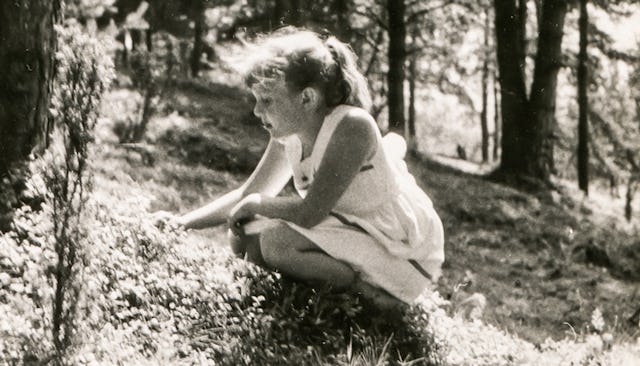What I Learned From My Mother About Parenting

There are people who have those “WWJD?” bumper stickers on the back of their cars asking people to consider “What would Jesus do?” as they make decisions both big and small in their everyday lives. Some have rebranded this to include “What would Oprah do?” and plenty of people stop and consider “What would Mom do” once they become parents and are now in the beautiful, petrifying and privileged position of raising small humans. These mothers recall the ways that their own mothers raised them – the way they did everything from handling the pain of skinned knees to broken hearts, or the amount of patience they showed when answering countless little questions about the stars, bedtimes, and vegetables; to how much grace they exhibited when answering the bigger questions about things like the birds and the bees, the importance of “No means no”, and death.
I am no different than any of those women. I am constantly asking myself “What would my mother do?” when situations and questions like these arise. The only difference is what happens after I answer that question: I do the opposite.
I have done my very best to not only avoid emulating how my mother raised me, but to figuratively run in the other direction. My home environment during my childhood was a culture of fear – our hardwood floors may as well have been covered in eggshells. There was a constant and heavy blanket of loneliness that was wrapped around my shoulders. While the words “I love you” were stated frequently, the reminders that this was just an empty phrase or based on conditions that were apparently rarely being met were constant. My mother used to tell me that “I love you because I gave birth to you, but that doesn’t mean I have to like you” while I was still in Elementary school, and my father informed me around my fourteenth birthday that “I love your mother more than I love you – I chose her, you just came along.”
She would make me sit alone in my room for hours on end when I was the age my children are now, with no explanation beyond telling me that she “couldn’t stand” me anymore. When I would come home from school a few years later with my heart or ego bruised from an argument with a friend, instead of comforting me, her first question would always be, “Well, what did you do wrong?” When I had to stay home from school on the occasions that I was sick with a fever or Strep throat, it was always made clear to me what a huge inconvenience it was to her and I was once again relegated to my room. I wasn’t allowed to watch movies or television because as she put it, “If you’re too sick to go to school, then you’re too sick to watch TV.”
And I believed her. I believed that it was my fault that she didn’t like me and that it was okay that my father told me he loved her more. I believed that I was a “bad girl” and an inconvenience and must have done something wrong to have a friend shun me. I believed all of it because I didn’t know any better. Because mothers have your best interests at heart and know what’s right and what’s best for you…right?
But that none of that means that I never learned anything from her about parenting. On the contrary, she taught me more than I could have expected.
She taught me the importance of saying “I love you” and meaning it. Not just at the end of phone conversations, or to accompany the kiss at the bus stop or at bedtime; but anytime – and without strings attached. Not only do I constantly tell my kids that I love them when they do something silly or wonderful or perfectly “them”, but I periodically reinforce and remind them that no matter what they do – and even if I seem temporarily mad at them for, say, emptying a container of uncooked rice on the kitchen floor, I will always love them and that there’s absolutely nothing they could do to make me stoploving them.
I have done my best to replace that blanket of loneliness I had draped on my shoulders with superhero capes on theirs. At four and five years old, I think children should be able to feel a sense of invincibility, of the endless possibilities of the world, rather than the obstacles. At their age, I think they should know that there will always be a set of arms outstretched towards them – to catch them, to hug them, to let them feel safe when they awaken from a bad dream.
And rather than shutting my children out, I do my best to keep that line of communication constantly open. I ask my daughter about a difficult day at school with curiosity but without judgment, so she is free to be honest about how she feels or why she did something without fear of punishment. Together we come up with solutions to how she can make better choices or handle things differently in the future.
And it has not been easy going through this parenting journey without my mom. I often have moments and days where I turn to my husband and say, “I want my mom. Just not my mom.” But just as my father succinctly put it more than twenty years ago, we don’t get to choose who our relatives are. We can only look at both their strengths and weaknesses and choose to take what we want and leave what we don’t. There are valuable lessons in both.
Perhaps the biggest lesson I’m learning is that the most important question I need to start asking myself is “WWID”?
What would I do?
This article was originally published on